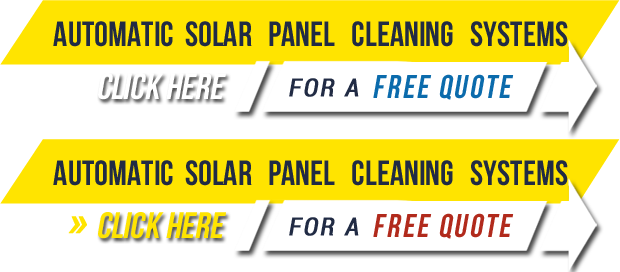Does cleaning a panel with hard water make a difference? ABSOLUTELY!!! Hard water can accumulate on a panel and cause scaling. The accumulation of this scaling can cause a reduction in electrical output, reverse polarity or “hot spotting” which can kill a solar panel.
This is why we do not recommend simply standing on a ladder and spraying water from a hose onto the panels. You want to ensure that any water left on a panel is not hard water.
What is hard water? Hard water is water that has a high mineral content (in contrast with “soft water“). Hard water is generally not harmful to one’s health, but can pose serious problems in industrial settings and when applied to solar panels. Of primary concern for hard water spotting on solar panels is the combined levels of magnesium and calcium. Most areas of the U.S. have hard water.
Hard water also forms deposits that clog plumbing and etch or spot. These deposits, called “scale“, are composed mainly of calcium carbonate (CaCO3), magnesium hydroxide (Mg(OH)2), and calcium sulfate (CaSO4).
Hard water needs to be treated. For residential and small business applications, you may wish to consider a whole house water softener which will not only protect your solar panels but will work to reduce clogging of pipes, scaling and etching of porcelain. If you do not wish to purchase a whole house system, Heliotex has small water softeners available which will work for our Heliotex Automatic Solar Panel Cleaning Systems.
For commercial systems, we recommend using a reverse osmosis unit to clean the volume of water necessary for multi megawatt systems.
Note that we also recommend cleaning panels during the hours of darkness and low wind, so as to avoid the heat of the day. While cooler panels do provide additional output, spraying cold water on glass in hot sunny weather is not recommended. Some manufacturers have suggested that it MAY cause micro-fractures in the glass. I have no idea if this is true, but I do know that if you put any soap on a hot solar panel, it may dry before you get back to rinsing it off, which is not good.

Notice the calcium streaks from using hard water without filtration. These panels are only two years old and are unlikely to last more than two or three years more without significant damage.
INFORMATION FROM OUR LAB:
- Hardness of water is the combination of both Calcium and Magnesium together.
- A combined score (from a metals analysis of a water sample sent to the lab) of 50 or less is soft water (see below information again due to lack of standardization of what constitutes “hard water”)
To achieve the hardness total:
- Take the Calcium score number and multiply it by 2.4. Eg. 9.5 times 2.4 = 22.8
- 22.8 plus 16.4 = 39.2 which is soft water as it is under 50
Note that there is disagreement from sources as to what hardness number constitutes “hard water.” Some say up to a score of 100 is okay. We tend to work with the more conservative number of 50.
How can I test a sample of my water?
The best way to test your water is to take a sample at the site you intend to install an array and send it to a lab for a metals analysis. In the U.S., we have a lab that will give us a complete analysis for about $75.00. Please contact us and we will refer you to the lab.

